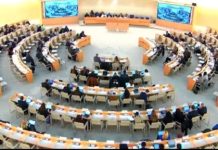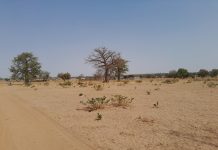By Fatoumatta K. Jallow
Mr Sheriffo Bojang, the deputy Minister of Agriculture, said the Gambia Government’s contributions during the first phrase of GNAIP did not reach the 10% required under the Maputo Declaration as investments through donor funded projects could not fill the funding gaps while the commercial banks loans to agriculture is less than 5%.
He said the efforts of the country in implementing the first phrase of the GNAIP was a challenge, especially with regard to funding and therefore leading to low achievements in targets set in the priority investment areas.
The deputy agriculture minister was on Tuesday, 27 September, at the Kairaba Beach Hotel in Kololi, speaking at the opening of a three days’ workshop for launching the development process of the second generation drafting process of the GNAIP 2016-2025 organised by his ministry, in collaboration with ECOWAP and NEPAD agency CAADP horizon 2025.
In his opening statement, Mr Bojang said “The role of Agriculture in the Gambia economy cannot be overemphasized. It is through accelerating agricultural transformations in the Gambia, that we can make the country self-sufficient in our production activities.”
He said the country, indeed, has achieved over the last ten years significant progress with focus on land development, water control, input supply, partnership development, modernization of equipment and developing a strategy based on results of research.
“However, despite the many emergencies that the Gambia faced in general, we have significantly increased the share of national budget to agricultural development overtime. The emerging issues to be considered, in the next generation of GIAIP should include, development of an inclusive approach, the inclusion of women and youth, rethinking in agricultural development, develop value chains and to enable agricultural productivity, “he added.
Mr. Bojang further stated that for them to achieve their goals/results, they need to have an impact that improves the living conditions of the population by 2025. “We must therefore go to concrete actions by renewing the partnership between actors. A key question is “how to involve the private sector?” ” he said.
He added that they must also develop advocacy for better repositioning of agriculture on the agenda rationally. “The commitments of Malabo and orientations of ECOWAP who give importance to the promotion of family farms and food sovereignty should be highly embraced by all,” he concluded.
Mrs Fatou Samba Njie from NAWFA, representing Women Farmers, also speaking at the occasion, said the role of farmers is key in the development of agriculture as farmers contribute to the success of most agricultural projects. “Farmers are being used in designing of the projects but during implementation we are sidelined,” she said.
She urged for the creation of open markets for farmers to sell their produce and organizing of trade fairs both nationally and internationally for exhibition and to showcase their products. “Some projects have been funding us to attend trade fairs but that’s not enough,” she said.
Participants at the workshop.





















